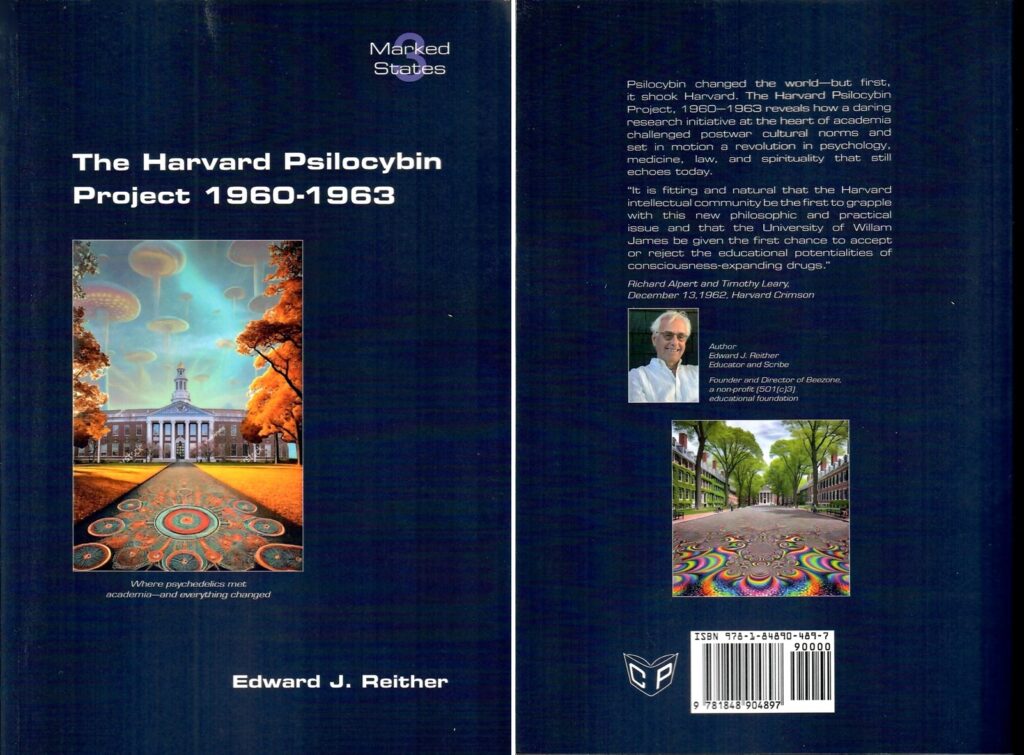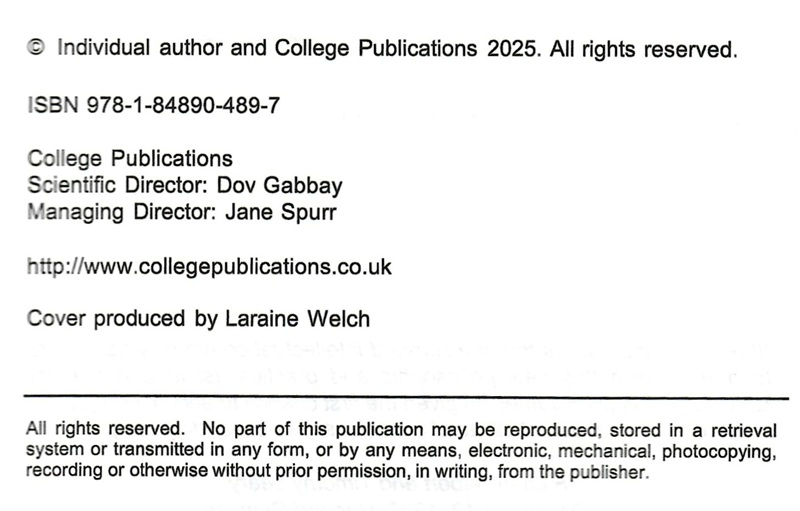The Harvard Psilocybin Project 1960-1963
Where psychedelics met academia – and everything changed



“It is fitting and natural that the Harvard intellectual community be the first to grapple with this new philosophic and practical issue and that the University of William James be given the first chance to accept or reject the educational potentialities of consciousness-expanding drugs.”
Richard Alpert and Timothy Leary
***
Psilocybin changed the world – but first it shook Harvard University. The Harvard Psilocybin Project 1960-1963 reveals how a daring research initiative at the heart of academia challenged postwar cultural norms and set in motion a revolution in psychology, medicine, law, and spirituality that still echoes today.

The Harvard Psilocybin Project 1960–1963
by Edward J. Reither
Where psychedelics met academia—and everything changed.
In the early 1960s, a quiet revolution stirred within the hallowed halls of Harvard University. Led by Timothy Leary and Richard Alpert (later known as Ram Dass), the Harvard Psilocybin Project dared to explore uncharted territory: the potential of psilocybin to expand consciousness, heal psychological wounds, and awaken new realms of human understanding.
Ed Reither tells the gripping true story of this bold academic experiment. With clarity and insight, educator, historian, and founder of Beezone—offers a vivid, balanced account of how a group of psychologists challenged the norms of science, medicine, and culture, igniting a controversy that still reverberates today.
More than just a history of a research project this book is a meditation on the pursuit of knowledge, the limits of institutional tolerance, and the enduring human quest to pierce the veil of ordinary awareness. Reither’s detailed research sheds light on the visionary aims, ethical dilemmas, and institutional backlash that ultimately led to the project’s shutdown—but not before planting the seeds for a global psychedelic renaissance.
Perfect for readers interested in psychology, psychedelics, spirituality, and 20th-century cultural history, this book is a powerful reminder of how ideas—once ridiculed or repressed—can transform the world.
Discover the moment when science met spirit—and the world would never be the same.
About College Publications
College Publications was established by Professor Dov Gabbay, Emeritus Professor of Computer Science at Bar-Ilan University, King’s College London, and the University of Luxembourg, along with Jane Spurr of the Department of Informatics at King’s College London. Created by academics for academics, College Publications aims to serve the scholarly community with a fresh, independent approach to academic publishing.
Founded with several core objectives, College Publications seeks to:
-
Match the publishing standards of Oxford University Press (OUP) and Cambridge University Press (CUP),
-
Provide a prestigious, non-profit publishing outlet that breaks the monopoly of commercial academic publishers,
-
Offer high-quality books at reasonable prices, making scholarly information more accessible worldwide.
Led by Professor Gabbay as Scientific Director and Jane Spurr as Managing Director, the team brings over two decades of experience in academic publishing. Together, they have worked with leading publishers such as Elsevier, Springer, OUP, CUP, Wiley, Blackwell, Academic Press, Addison-Wesley, CSLI Publications, and World Scientific, producing numerous books, handbooks, and journals.
College Publications distinguishes itself by allowing authors to retain copyright, with the freedom to reuse their material and even publish it online after the title reaches profitability. As more academics recognize these advantages, College Publications is emerging as a significant alternative to costly, profit-driven publishing models.
Academics no longer need to be controlled by commercial interests.
For inquiries, please contact Managing Director Jane Spurr.
College Publishing Ltd, trading as College Publications, is registered in England and Wales (Company No. 7946520). Registered office: 23 Church Street, Rickmansworth, WD3 1DE.
